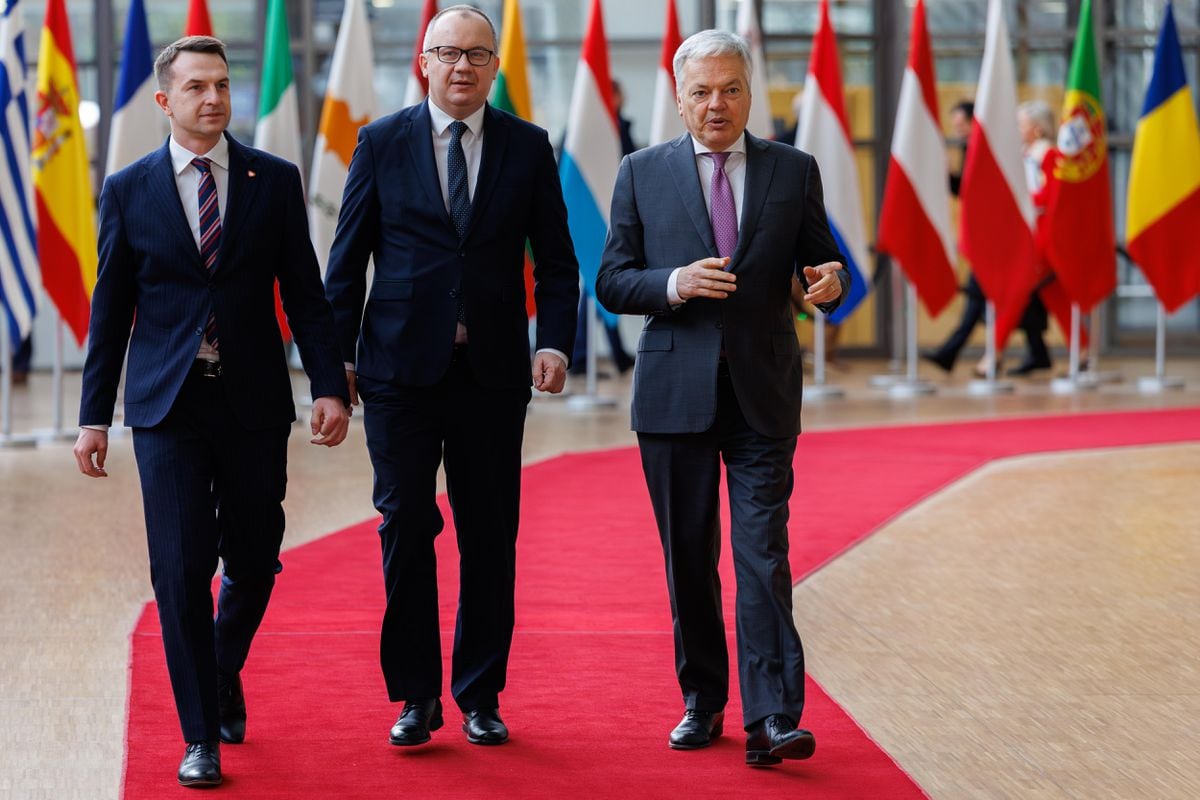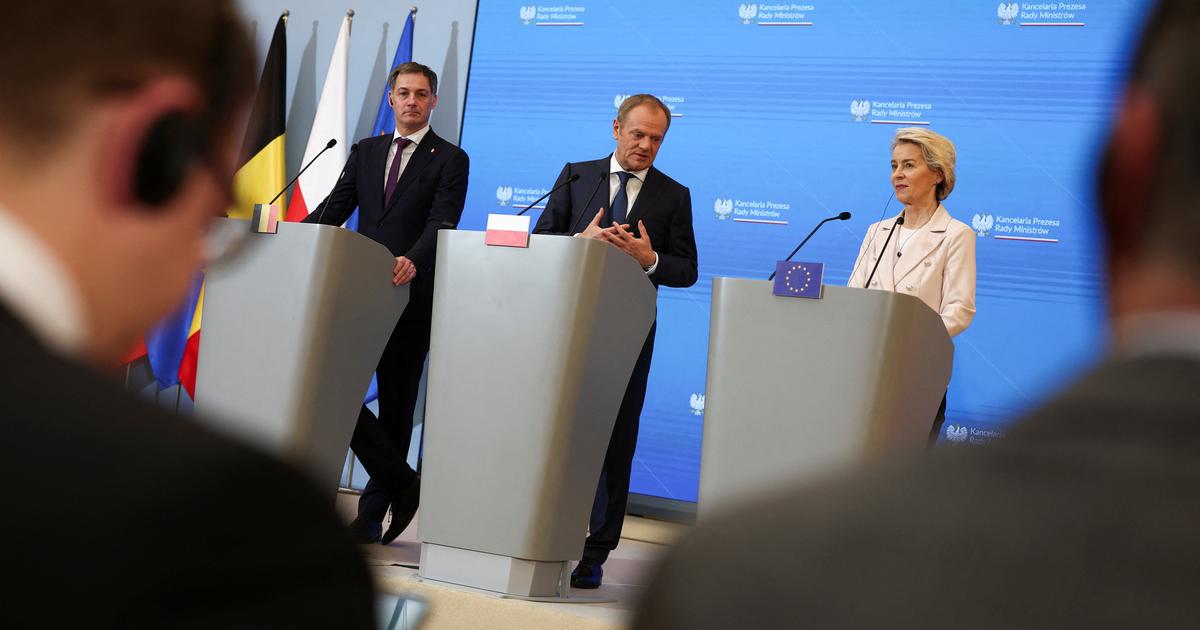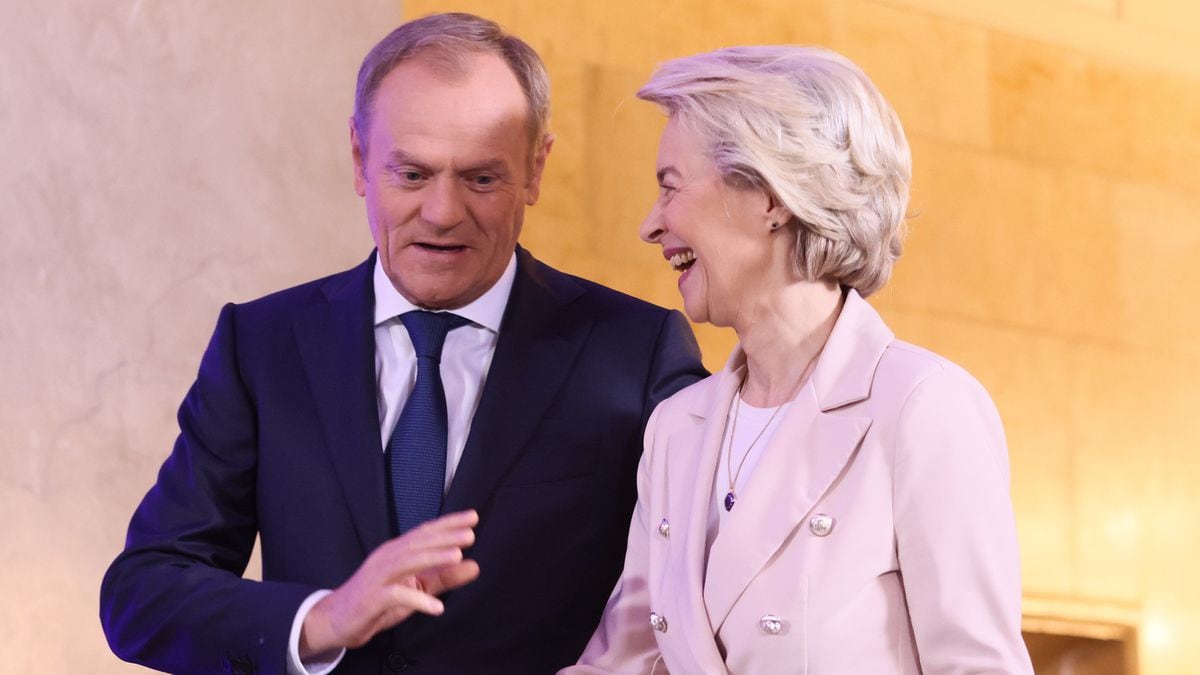The European Commission has debated in its weekly meeting this Wednesday the formulas to launch the long-awaited recovery fund against the pandemic without counting on Hungary or Poland.
The plan, according to community sources, would allow to avoid the veto of Hungary and Poland to the EU budgets and finance the 750,000 million euros of the recovery fund within the budgetary framework in force and distribute it among the countries that wish to participate.
The formulas on the table are politically risky, because it would visualize the isolation of Hungary and Poland within the club.
But the community body ensures that from a technical point of view "they can be applied quickly."
The threat to ostracize those two countries comes a week before the December 10-11 European summit in which Brussels is still waiting for Hungary and Poland to lift their veto.
Both countries keep the agreement on the budgetary framework for 2021-2027 and the creation of this anti-crisis fund blocked.
In this way, Budapest and Warsaw are trying to prevent the approval of the new regulation that conditions community aid to respect for the rule of law.
But neither the Council of the EU nor the European Parliament seem willing to renounce a regulation that will allow EU countries to suspend partners where the fragility of the rule of law endangers the financial interests of the Union.
Germany, the country that presides over the Council of the EU during this semester, is looking behind the scenes for a possible agreement with Budapest and Warsaw that will allow the situation to be unblocked at next week's summit.
But the Commission is already preparing alternative ways to approve the Recovery Fund given the risk of maintaining the veto of the Governments of Viktor Orbán and Mateusz Morawiecki.
Community sources have been convinced that "the solution can be found and can be applied quickly".
The same sources add that "the Commission is convinced that the alternative route allows exactly the 750,000 million euros of the [recovery] fund to be replicated and disbursements proceed on schedule."
The countries participating in this scheme should decide, in this case, whether to reduce the fund by subtracting the amount equivalent to the planned items for Hungary and Poland;
or if, otherwise, these amounts (in theory corresponding to these two countries) are divided among the rest.
Brussels is confident that next week's European summit (December 10 and 11) will resolve the conflict with Hungary and Poland, and will enable the historic agreement reached in July, when a budget framework of more than a trillion euros, was agreed. euros and a recovery fund of 750,000 million euros financed with European debt.
The blockade of Warsaw and Budapest affects all community accounts and even jeopardizes the approval of a regular annual budget for 2021. The European Commission has also started preparations on Wednesday to operate next year with an extended budget, which It would force the payments to be broken into twelfths per month.
Commission sources warn that this formula would lead to a fall in spending of 25,000 to 30,000 million euros, with special emphasis on structural funds, research programs and border management.
The famous Erasmus scholarships for university studies outside the country of origin would also be immediately suspended.
Despite the difficulties, the Commission is unwilling to allow Viktor Orbán and Mateusz Morawiecki to condemn the EU to a budget stalemate amid the severe crisis caused by the covid-19 pandemic and with the possibility of further economic turbulence. for the definitive exit of the United Kingdom from the European market on December 31st.
The community body is already planning the start-up of the recovery fund "within the community legal system and with the participation of the countries that so desire."
The formula could operate with the contribution of national guarantees to allow the Commission to issue debt in the markets and finance aid to all the countries involved.
Commission sources ensure that the current Own Resources Decision (the legal text that sets the Union's income ceiling) offers sufficient margin to start up the recovery fund without the need for the expansion that was planned in July and that it has been blocked by Budapest and Warsaw.

/cloudfront-eu-central-1.images.arcpublishing.com/prisa/URYLOXLEU3MEHG7KOIOU2EGZSY.jpg)











/cloudfront-eu-central-1.images.arcpublishing.com/prisa/KMEYMJKESBAZBE4MRBAM4TGHIQ.jpg)

